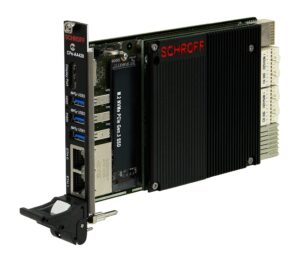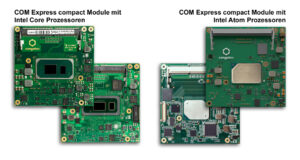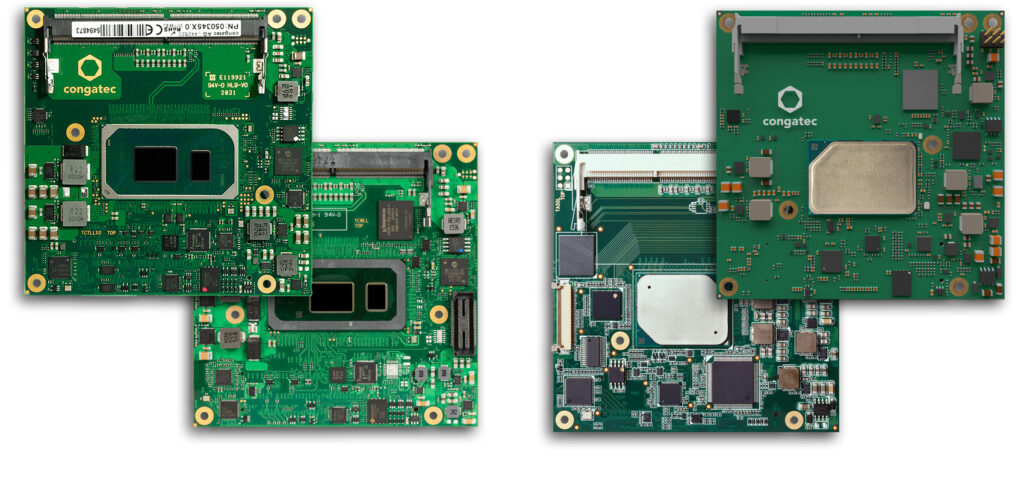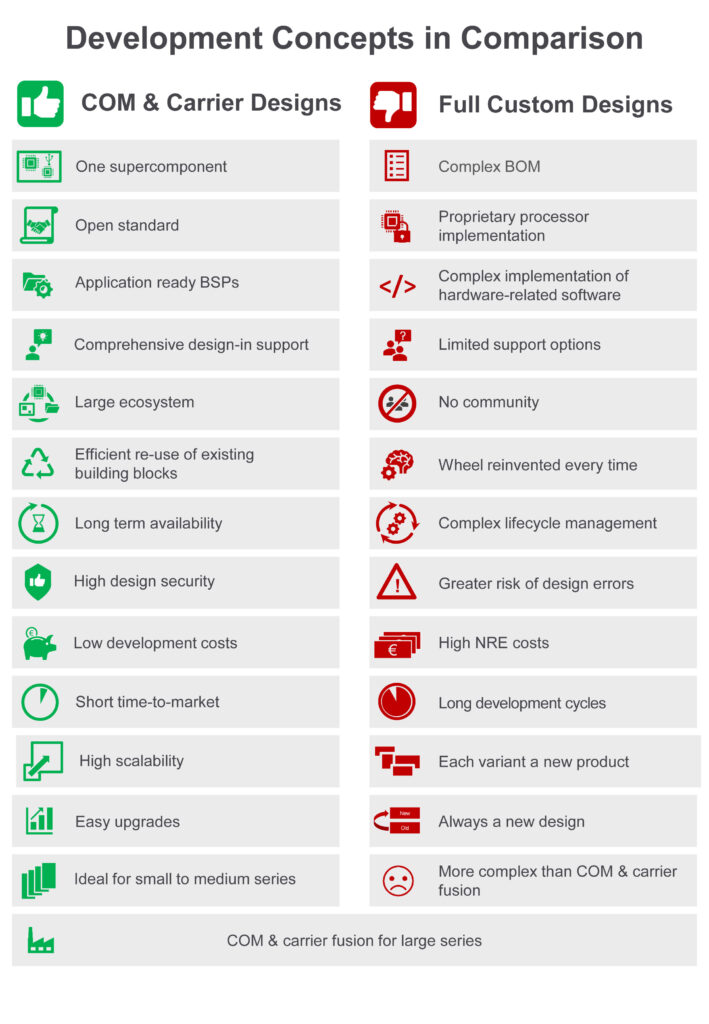Several nVent automotive customers within the PXI Express chassis business kept asking for ultra-slim CPU boards. Thanks to nVent’s collaboration with Congatec, these are now available
Test and measurement experts focus primarily on test software and the wide range of I/Os they require. The central controllers are just a means to an end. Therefore, they simply connect a notebook or desktop PC to their often PXI Express-based measurement system, which only houses expansion cards. Alternatively, they opt for a PXI controller design that meets and often exceeds all possible requirements. Therefore, 3U PXI boards tend to come in widths of 8HP or 12HP.

However, this only works if space isn’t critical or dedicated measurement system quantities are not so large that the cost of each component must be scrutinized to save money. But there are many applications where space is scarce. For example, when assemblies must be particularly flat because the system itself is only 1U or 2U high. Typical applications of such space-constrained systems are found in the automotive sector, where they are installed in prototypes so that developers can test new radar, lidar and other optical sensors needed for autonomous driving. In such systems, saving as many HPs as possible is critical, since the width of the assembly determines the height of the system because it is not installed vertically but horizontally.
Saving space is the order of the day
Even in eight-slot 3U systems, space is scarce. CPU boards with 8HP to 12HP often block two to three slots, so that the system must be wider or otherwise offer only a few slots for expansion, which is insufficient for many test and measurement tasks. Being able to accommodate more I/Os in a smaller space is therefore often desirable as it avoids the need to stack two systems on top of each other, which would occupy more space in the rack.
To solve the space issue, nVent has joined forces with Congatec to develop a 3U 160mm PXI carrier for COM Express Compact modules. In the first instance, it was optimized for the conga-TC175 to create a powerful and compact controller based on seventh-generation Intel Core processors. It routes only PCIe lanes required for the PXI Express architecture to the backplane. The front panel of this slim platform provides just a DisplayPort for monitor connection, three USB interfaces, two Ethernet interfaces and, to complete the feature set, 1M.2 slot for fast SSDs. This way, nVent was able to create an extremely slim but powerful PXI SBC that fully focuses on the core functionality needed for a central CPU unit in a PXI system. Thanks to the modular design, customers can choose any Intel Core processor configuration with a maximum TDP of 15W. All this fits into a flat 4HP board – including the cooling.
Next aim: creating variants
The offering is now being expanded to include a COM Express Basic variant utilizing the conga-TS370, which can integrate Intel Core processor technology up to the latest six-core solutions of the eighth generation and therefore also allows system configurations with virtual machines. Such high scalability without redesign – even across processor generations – is a huge advantage for nVent and thus its automotive test equipment customers, as it drastically reduces the development effort. It means that nVent will be able to offer off-the-shelf modules for future solutions based on COM Express Basic and Compact modules from Congatec at an extremely low development cost. The same applies to individual variants, which can also be realized with justifiable time and cost effort by leveraging the COM and carrier approach. All in all, the COM Express-based controller boards for PXI systems from nVent are a rather attractive solution that providers of full-custom PXI controllers could probably only beat on price in mass-production series.

Another advantage that nVent appreciates is the ability to implement new processors more quickly, since modules are often the first products to become available with the latest embedded processor technology. Ultimately, the slim design is also more cost-effective than full 8HP or 12HP SBCs. nVent’s customers benefit from the modular approach as well, because they can scale the carrier using different modules to achieve a better price/performance balance where necessary, since there are significantly more variants within a module series of a processor generation than a PXI CPU board manufacturer of full-custom designs could ever offer. All in all, a very attractive approach for test and measurement providers.



